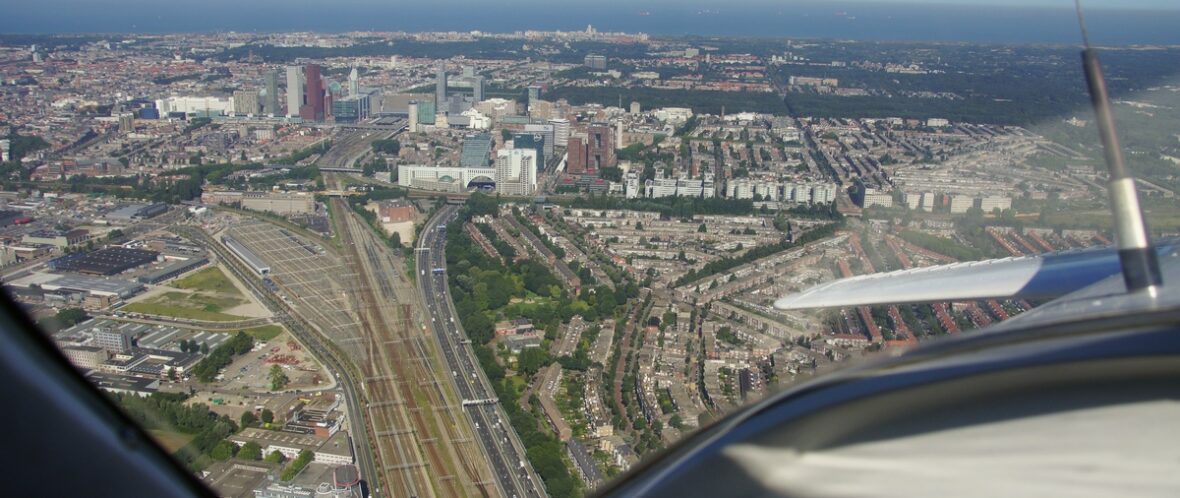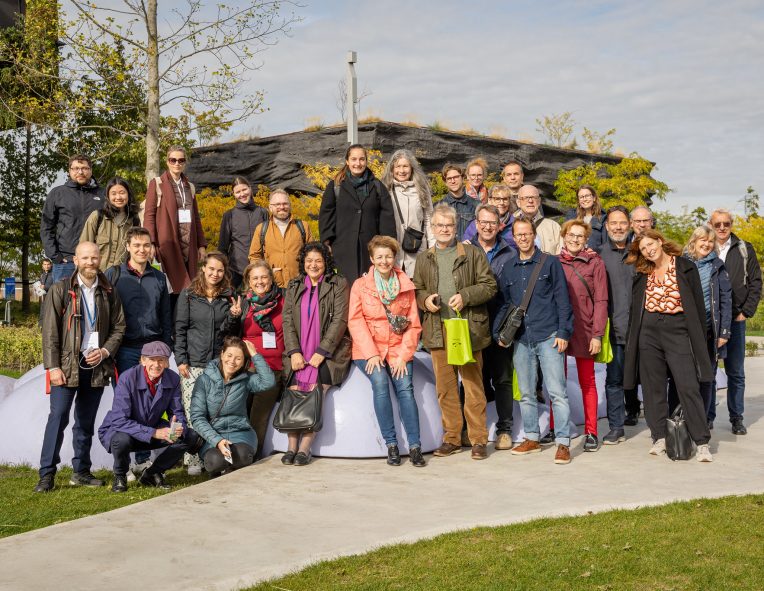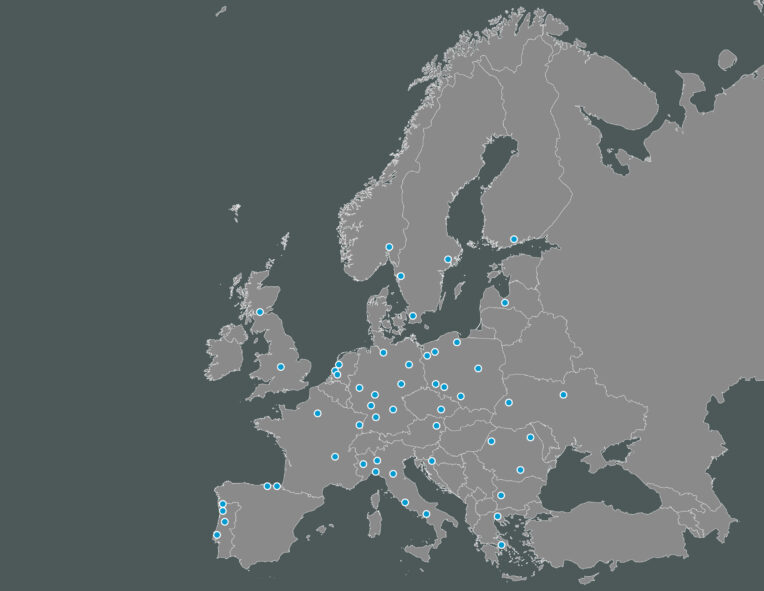A new METREX Expert Group dealing with today’s challenges in spatial economy
Introduction
Strategic autonomy and geopolitical shifts
Against the background of geopolitical changes we see advancing EU-policies on strategic autonomy. This implies one way or another vast economic transitions in Europe which cannot but affect the metropolitan landscape. Metropoles and metropolitan regions represent a powerful concentration of innovative economic potential. Therefore, it is only logic that these cities and regions take their responsibility for the European economic and geopolitical challenges lying ahead.
For many years, Europe has outsourced industrial and manufacturing capacities to so-called low-wage countries, often characterised by minimal environmental regulations, poor labour conditions, and limited rule of law. At the same time, Europe has increasingly focused its local economies on services and consumption.
Given today’s geopolitical and economic context, we must strike a better balance between economic autonomy and the principles of free trade. Some level of industrial reshoring is anticipated, alongside the formation of strategic global alliances and the diversification of supply chains. This shift concerns a broad spectrum of essential sectors, including foundational industries, digital hard tech, green technologies for energy transition, and circular economy solutions.
In parallel, there is a specific economic domain in which Europe’s geopolitical autonomy is directly at stake: advanced and cutting-edge technologies, such as artificial intelligence and the defence industry. In these areas, Europe has the potential to take a global leadership role—provided it commits to mission-oriented innovation.
Mission oriented innovation
Today, many policymakers promote the combination of this re-establishment of an independent European industrial basis with other transitions, re-industrialization, more specifically the transition towards a sustainable and just Europe. A strategic European industrial base is merely impossible without sustainable energy, shortening and diversifying chains of production and supply into circular systems, confidence in the institutions and an inclusive society.
Furthermore, it requires funding, room for experiment, adequate physical environments, investors, regional support and so on.
This will only be possible if we manage to innovate in a mission-oriented manner, that is in a way in which innovation will be directed towards fulfilling collective needs rather than maximizing private profits.
Outline of the proposed Community of Practice
Agenda for exchange of best practices
We will focus on three levels of spatial conditions to exchange challenges, experiences and best practices for mission-oriented innovation in European Metropoles and Metropolitan Regions:
- Projects for affordable business accommodation are essential to create new business models and new businesses. In general, the cost of land and construction in Metropoles is relatively high. In the battle for space, room for work often loses the competition. As a consequence, the market would be dominated by ´grown up´ companies, not start-ups. How do metropolis deal with this dilemma?
- Areas of successful innovation. How do metropoles provide (new) and maintain (old) business areas where startups can settle and grow into scale ups. Which spatial conditions are required to make way for the new economies in our metropoles: proximity of transport, science, labour force…?
- Clusters of interlinked businesses providing complete (and thus autonomous) networks of chains of supply and production. Do metropoles promote specialization or generalization of their industrial profile, do metropoles stimulate synergies among businesses? How? Which is the appropriate scale of coherent programmes and interventions?

Network under construction
First step is to initiate a sub-network or Community of Practitioners under METREX aiming to exchange data, knowledge, understanding and experiences (best practices) on the topic of spatial conditions for the mission-oriented transition of metropolitan economies. (Or rather to re-initiate such a network, since METREX already had one: EconoMETREX)
The ultimate aim of the network group is offering both effective policies on the metropolitan level as well as recommendations to operationalize the EU economic agenda.
On the short term however, our aim is to bring practitioners together, under the umbrella of METREX, to explore the way these economic challenges are met in the metropoles and metropolitan regions. Together we will find out and develop the appropriate way of organizing the network.
The formula of the network group will be based on mutual inspiration and open mindedness. In order to do so, we won’t start with abstract academic deliberations on strategic autonomy, sustainability and fair urban policies.
We will start by:
- focusing om concrete, innovative policies, developments, instruments and projects in our cities and metropoles, the main question being what conditions can we provide for a spatial-economic strategy that will support the required economic transition
- organize discussions combined with site-visits in order to inspire, make our shared knowledge concrete and work on a living network of colleagues.
We expect there will be considerable overlap with other expert groups and working lines within METREX. One of those being the long-lasting efforts of METREX exploring the mega-regional scale. It is essential to realize that time of our members is scarce, and we should therefore maximize on synergy between all of our efforts. This implies that we will also discuss the possibility to combine for instance the work of this group with the work on the mega-regions.
Whitepaper
In order to make the expert group as much as possible focused and result oriented, we propose that the group will work on a white paper that could be presented to our regional and metropolitan boards (and in a next step to relevant organizations in Brussels). The white paper would for instance discuss the importance of metropoles for innovation, the necessary conditions (EU funding e.g.) and co-ordination mechanisms in order to achieve benefits of scale on the mega-regional level.
.
ACTIVITIES PROGRAMME 2025
Kick-off meeting
Date: 4 June, 2025
During the METREX Spring conference in Gdańsk, the first session was held to celebrate the re-establishment of the EconoMETREX expert group. Discussions with METREX colleagues to draft ambitions, programme and next steps.
Online operational meeting
Date: 1 September 2025
Following the launch of the new Expert Group EconoMETREX 2.0 in Gdańsk during the last METREX Spring Conference, coordinators and members will meet again on 1 September for an operational online meeting. The purpose of this session is to discuss the next steps for developing the working group and discuss together a contribution to the Amsterdam 750th anniversary’s Conference scheduled on September 15-16 in the Dutch city.
World-Cafés session at the METREX Autumn Conference in Gipuzkoa
Date: 5-7 November 2025
The EconoMETREX Working Group held a highly productive hybrid session in Gipuzkoa during the METREX Conference. Johan van Zoest (Amsterdam) shared his reflections on the Draghi Report, emphasising the need for metropolitan regions to strengthen their economic policies. Short pitches were also delivered by representatives from the Stockholm Region and the Rotterdam–The Hague Metropolitan Area. Marcel Ionescu-Heroiu (World Bank) presented the draft White Paper of the Working Group — you can access the document [here].
Daniele Zucchelli (Metropolitan City of Milan) presented a survey linked to the White Paper, which is still open and collecting responses. Here is the link to the EconoMETREX White Paper – Informative Survey. You will also find a very short additional questionnaire assessing the governance structures that support economic and social development: the One-Minute Survey on Governance.
All responses and aggregated results will be shared once members have completed their submissions.
Interested in participating and taking an active role in the new Expert Group?
Please don’t hesitate to contact the Secretariat at viviana.rubbo@eurometrex.org or reach out directly to Peter Pol, City of The Hague, at peter.pol@denhaag.nl.
Image copyright: Maarten Reiling [urbanplan.nl]



